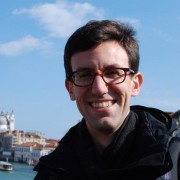
Everybody lives differently in Colin Thubron's new novel, but they all burn to death in the same way. "Night of Fire" is a collection of stories about the tenants in an old apartment building that's consumed one evening while they sleep. Older or younger, loved or lonely, each of the victims initially ignores the pungent odor, awakens into smoldering confusion and then succumbs.
(Buy it in harcover by clicking here or order in KINDLE edition by clicking here)
In that grim sense, "Night of Fire" may be the hottest novel of the year, but the real heat is generated by Thubron's gorgeous prose and his reflections on the persistence of memory. Long celebrated for his travel writing - "Mirror to Damascus" appeared 50 years ago - Thubron offers the kind of luxuriant sentences and philosophical ruminations that would feel antique if he weren't so timelessly elegant. Having wandered the world, he presents a constellation of characters stuck in their rooms as the flames unmake them. Where, each story asks, does the substance of consciousness reside?
Like hanging, the prospect of incineration concentrates the mind, but terror is only a fleeting element of this novel. Instead, the smoke induces revelry in these people before they die. A woman recalls the events that led to her career as a naturalist. A photographer considers the deceptions he perpetrated while dating. The oldest tenant relives a traumatic betrayal in grade school.
Their stories would seem to be entirely independent - the neighbors have barely acknowledged each other for years - but tantalizing echoes gradually emerge. Regret hangs heavy in all these rooms, along with memories of lost mothers, and most of these victims look to the stars as they contemplate the twinkling light of their faith. There's even a mystical twist when some later characters appear to have dreamed up earlier ones.
In the longest story, an unforgettable piece called "Priest," an ascetic man living on the ground floor discovers an old photograph from his spiritually tumultuous seminary days. That picture draws the priest back to a trip he took with a few other divinity students to Mount Athos. It's a plot perfectly drawn to capitalize on Thubron's skills and past travels. The Greek mountains rise from the shimmering haze of memory as three young men catch sight of "the mother monastery of Athos: less a building than a whole fortified settlement crossing the heights in battlements and turrets, dark with cypress trees." Ushered inside by Greek Orthodox monks, the students "lapse into baffled wonderment" and experience a level of intimacy they never felt in their British seminary.
But that closeness leads to a tragedy that has troubled the old priest for decades, clouding his faith and leaving him in the shadow of remorse. It's an extraordinary story about the stain of cowardice, a demonstration that what haunts us longest is often not our actions, but our failures to act, those gaping moments of moral timidity that admit no closure.
Equally powerful, though in a setting far removed from the priest's exotic travels, is the story of a neurosurgeon dreaming of his upcoming marriage. Inspired by watching a brain operation in a Welsh hospital, Thubron uses this doctor's work to concentrate on the theme that pulses through "Night of Fire": "He thought of the brain as he might of an unbreakable cipher," Thubron writes. "In its memories it held the web of human identity. It was the incarnate self." But of course, that description only opens to greater mystery. How can just a few pounds of matter, "a labyrinth of electro-chemical activity," contain what seems transcendent and immaterial: our very selves, past and present?
The neurosurgeon's story revolves around the treatment of two patients suffering the effects of brain tumors: One is a woman desperate to retain her memories of a cherished affair; the other is a religious fanatic whose spirituality could be carved away by surgery. For the doctor, their cases present an unresolvable tension between pathology and identity. "The hippocampus was totally sclerotic," the neurosurgeon thinks with faux self-confidence, "and my business is to heal people, not preserve their fantasies."
This is that rare tale that lures us into a metaphysical black hole: the nature of identity that eludes conclusion. When the surgeon's devout patient whispers, "My brain is not me. I'm me," we feel his desperation and confusion. He's staring into the paradox that Emily Dickinson articulated:
The Brain is just the weight of G0D -
For - Heft them - Pound for Pound -
And they will differ - if they do -
As Syllable from Sound -
That distinction between the physical world and the intangible realm of thought grows ever more mysterious as the apartment building and its residents are consumed by flames. In the final moments, the neurosurgeon recalls arguing that consciousness is merely an illusion that "emerges only from the raw material of our speech and perceptions." But that explanation suggests a series of nested questions about who is perceiving that illusion of selfhood. Thubron inscribes that dilemma in his novel's subtly complex narration, which shifts without notice from third person to first, creating on the page a simulacrum of selfhood that we inhabit without notice.
Appropriately, the final tenant we hear from is a retired teacher for whom "travel became a compulsion, a subtle liberation." While staying in a Tibetan Buddhist monastery in India, he once saw bodies consigned to funeral pyres and wondered, "What survives death?" A friendly monk leads him to "an ancient understanding" not so different from the neurosurgeon's up-to-date science.
Thubron's ability to span that geographical, cultural and philosophical range is just one remarkable element of this profound and exquisite novel.
(Buy the book in harcover by clicking here or order in KINDLE edition by clicking here)


 Contact The Editor
Contact The Editor
 Articles By This Author
Articles By This Author